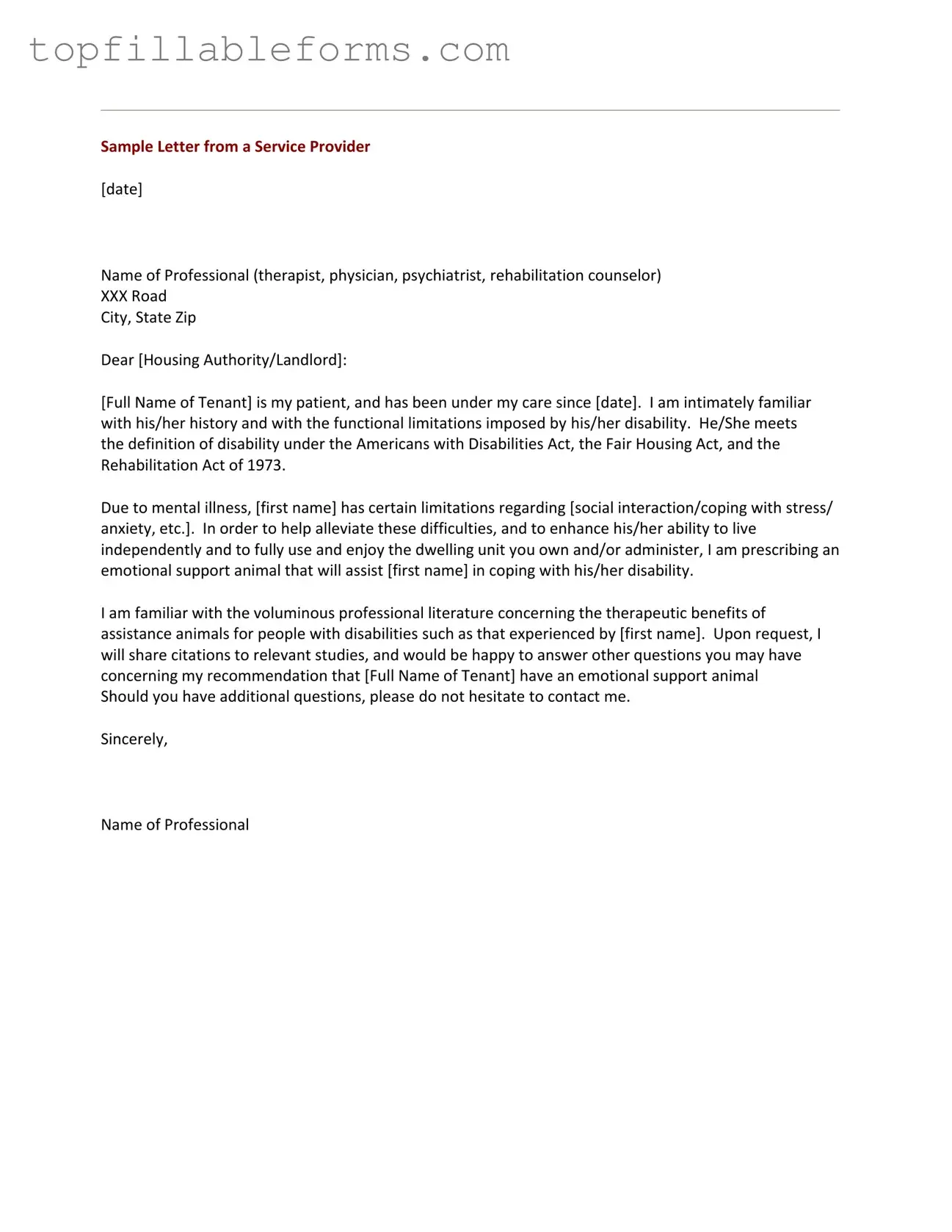Printable Emotional Support Animal Letter Form in PDF
The Emotional Support Animal Letter is a document that provides official recognition of an individual's need for an emotional support animal due to mental health conditions. This letter, typically issued by a licensed mental health professional, outlines the therapeutic benefits that the animal provides to the individual. Understanding this form is crucial for those seeking to enhance their well-being with the assistance of an emotional support animal.
Open Emotional Support Animal Letter Editor Here

Printable Emotional Support Animal Letter Form in PDF
Open Emotional Support Animal Letter Editor Here
Finish the form now and be done
Finish your Emotional Support Animal Letter online by editing, saving, and downloading fast.
Open Emotional Support Animal Letter Editor Here
or
▼ PDF File

